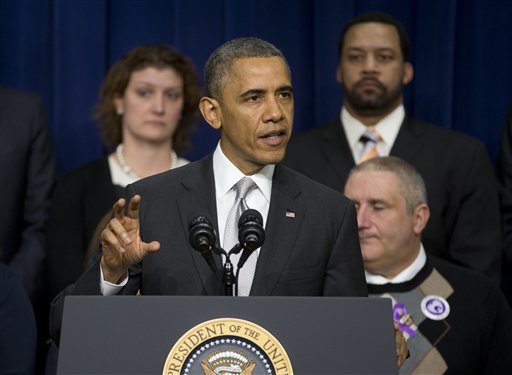The Affordable Care Act gets more and more curious. President Barack Obama promised to protect those with preexisting conditions and help the uninsured. Yet these vulnerable groups are getting clobbered. Congress needs to show mercy and protect them now instead of waiting until the entire misadventure plays out. Here’s a plan of action.
Videos By Rare
One of the president’s biggest lies to sell Obamacare was claiming it would protect people with preexisting conditions. He even lied that his mother Stanley Anne Dunham, a cancer victim, suffered because her insurer used the preexisting-condition excuse to drop her. The truth, revealed in a 2011 biography, is that she had employer-provided insurance that paid her hospital bills until the end of her life. Since 1996, employer-provided plans have been barred from dropping or excluding anyone based on a preexisting condition — so too is Medicare and Medicaid.
The problem of preexisting conditions affects about 2 million people in the individual market. The best options for sick people are being closed because of Obamacare. In 35 states, the sick have relied on high-risk pools, where premiums are subsidized to keep them within reach. But every high-risk pool is scheduled to close on Dec. 31, 2013, or shortly after, because the law directs ill patients to enroll in Obamacare exchange plans.
The problem is that most exchange plans severely limit choice of hospitals and doctors, excluding specialty hospitals such as Memorial Sloan-Kettering Cancer Center in New York City. For a cancer patient in the middle of chemotherapy, being forced to change health plans and oncologists is a life-or-death issue.
State insurance commissioners are scrambling to delay the closings. In truth, the pools should permanently be kept open and funded with money slated for the Obamacare exchanges.
The high-risk pools are an honest way to subsidize care for the sick, and they’ve worked for 25 years, even with long waiting lists. Obamacare replaces them with a devious method — luring young people into exchange plans at premiums far higher than the cost of care to offset the cost of sick people in the same pool. The exchanges rip off the young and downgrade care for the sick.
But the administration is doubling down on marketing them. Already it has spent $6 billion to create and promote Obamacare exchanges. Not a dollar of that has gone to medicine, surgery or bedside care.
Putting everyone in the same risk pool is a major cause of Obamacare sticker shock. Maintaining high-risk pools will keep premiums down in the individual market.
As divided as Congress is, Democrats and Republicans should find common ground in preserving and expanding the high-risk pools.
A second simple remedy both parties should support to help the vulnerable is COBRA subsidies for people who get laid off so they can afford to keep their on-the-job coverage. According to the Congressional Budget Office and the American Enterprise Institute, about half of the uninsured regain coverage within 12 months, generally because of a new job. (It may take a bit longer during the current slowdown.)
These people need help paying COBRA premiums. In 2009, Congress enacted a temporary 65 percent federal subsidy for 18 months. According to a U.S. Treasury analysis, it increased COBRA participation by almost 50 percent. A larger subsidy for a shorter period would have done even more.
But Obamacare replaced COBRA subsidies with something grossly inferior: Medicaid. Being dumped into Medicaid means losing access to your doctors.
The 2009 COBRA program cost $2 billion (about $2,000 per recipient). Funding high-risk pools would cost $22 billion a year ($11,000 per enrollee, according to the national association of these pools). That’s less than the $26 billion budgeted for the unpopular and still empty exchanges in 2014, and half of what is budgeted for 2015.
Beyond these two remedies, there may soon emerge bipartisan support to halt the damage from Obamacare. The compromise’s first step should be repealing Subtitles C, D, E and F of Title 1 of the law. It would leave in place the Medicaid expansion that covers the indigent and popular provision allowing children to stay on their parent’s plan until age 26 and eliminate the job-killing employer mandate, individual mandate, exchanges and, most importantly, the provision making all individual and group health plans conform to a Washington-knows-best benefits package.
Unless that costly provision is repealed, employers will drop coverage for millions in 2014. Hardest hit will be the people the president promised to protect: those with preexisting conditions. Without high-risk pools, where will these sick people go? Into a rabbit hole?
© CREATORS.COM
Related articles
- The GOP’s scrap-it-and-start-over Obamacare alternative (rare.go-vip.net)
- Actually, having a pre-existing condition can still kick you off your insurance (rare.go-vip.net)

